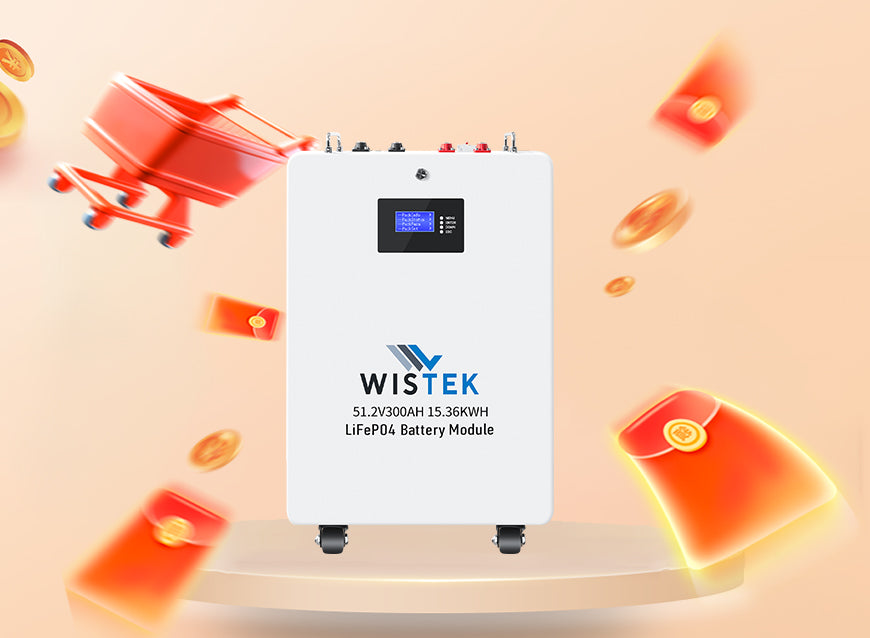Niveles de voltaje óptimos para una batería de 12 V completamente cargada
En lo que respecta a las baterías, comprender su voltaje es crucial para garantizar un rendimiento óptimo y una larga vida útil. Para las baterías de 12 V , ya sea que se utilicen en vehículos, sistemas de energía solar u otras aplicaciones, conocer el voltaje ideal para una batería completamente cargada es esencial para un mantenimiento y un funcionamiento adecuados. Este artículo explorará el voltaje ideal para una batería de 12 V completamente cargada , su importancia, cómo afecta la vida útil de la batería y cómo puede monitorear y mantener el voltaje de su batería para un rendimiento óptimo.
El voltaje ideal para una batería de 12 V completamente cargada suele estar entre 12,6 V y 12,8 V cuando no está bajo carga y a temperatura ambiente. Sin embargo, existen variaciones según el tipo de batería, su antigüedad y su estado. Esta guía le ayudará a interpretar las lecturas de voltaje, su impacto en el estado de la batería y qué hacer si su batería de 12 V no alcanza su voltaje ideal.
- Comprender el voltaje ideal para una batería de 12 V completamente cargada
- Cómo medir el voltaje de una batería de 12 V
- El impacto de la sobrecarga y la subcarga en una batería de 12 V
- Cómo mantener el voltaje ideal de una batería de 12 V
Comprender el voltaje ideal para una batería de 12 V completamente cargada
¿Cuál es el voltaje nominal de una batería de 12 V?
Una batería de 12 V se utiliza comúnmente en una amplia gama de aplicaciones, desde la alimentación de vehículos hasta la provisión de energía de respaldo para sistemas solares. Sin embargo, la designación de 12 V se refiere al voltaje nominal, no al voltaje con carga completa. El voltaje nominal de una batería de 12 V es de aproximadamente 12,0 voltios , pero esto no representa la carga completa de la batería.
Cuando está completamente cargada, una batería de 12 V suele alcanzar un voltaje de entre 12,6 V y 12,8 V. Este rango garantiza que la batería funcione a su máxima eficiencia, proporcionando suficiente voltaje para alimentar eficazmente los dispositivos o sistemas conectados. Es importante tener en cuenta que el voltaje disminuirá gradualmente a medida que la batería se descarga, por lo que monitorearlo regularmente es crucial para mantener la salud de la batería.
Factores que influyen en el voltaje de carga completa de una batería de 12 V
Varios factores pueden afectar el voltaje ideal de una batería de 12 V cuando está completamente cargada. Entre ellos se incluyen:
Química de la batería : La química de la batería influye significativamente en el comportamiento de su voltaje. Por ejemplo:
- Las baterías de plomo-ácido (incluidas las AGM y las inundadas) generalmente alcanzan un voltaje de carga completa de 12,6 V a 12,8 V.
- Las baterías de iones de litio , que son cada vez más comunes, pueden alcanzar voltajes ligeramente más altos cuando están completamente cargadas, normalmente alrededor de 13,2 V.
Edad de la batería : A medida que una batería de 12 V envejece, su capacidad para mantener una carga completa disminuye. Es posible que las baterías más antiguas no alcancen la tensión ideal de 12,6 V a 12,8 V cuando estén completamente cargadas, lo que puede indicar que es hora de reemplazarlas.
Temperatura : La temperatura a la que se carga la batería de 12 V también puede afectar su voltaje. Cargar a temperaturas extremas puede causar lecturas de voltaje inexactas o provocar daños con el tiempo. Las baterías generalmente funcionan mejor a temperatura ambiente (alrededor de 25 °C o 77 °F ).
Método de carga : El método de carga, incluyendo el cargador utilizado y la velocidad de carga, puede afectar el voltaje final de la batería de 12 V. La sobrecarga o la subcarga pueden provocar que la batería no alcance su voltaje ideal.
>>Vea también cómo funcionan las baterías de litio autocalentables
Cómo medir el voltaje de una batería de 12 V
Uso de un multímetro para comprobar el voltaje
La forma más común y precisa de medir el voltaje de una batería de 12 V es con un multímetro. A continuación, se explica cómo comprobar el voltaje:
Apague el dispositivo : Asegúrese de que la batería de 12 V no esté conectada a ningún dispositivo ni bajo carga. Esto le proporcionará la lectura de voltaje más precisa.
Configure el multímetro en voltaje de CC : configure el multímetro para medir voltaje de CC, asegurándose de que sea capaz de medir voltajes en el rango de 12 V.
Mida el voltaje : Conecte la sonda roja del multímetro al terminal positivo (+) y la sonda negra al terminal negativo (-) de la batería de 12 V. El multímetro mostrará el voltaje.
Interpretación de la lectura : Una batería de 12 V completamente cargada debe tener una lectura de entre 12,6 V y 12,8 V. Si la lectura es inferior a 12,4 V , es posible que la batería no esté completamente cargada. Si es significativamente inferior, podría indicar un problema con la batería o el sistema de carga.
Por qué son importantes las comprobaciones periódicas de voltaje
Las comprobaciones regulares de voltaje son esenciales para supervisar el estado de su batería de 12 V. Unas lecturas de voltaje constantes por debajo del rango ideal pueden indicar que la batería no se está cargando correctamente o que está perdiendo capacidad. Las comprobaciones regulares también ayudan a identificar posibles problemas a tiempo, como un cargador defectuoso o problemas con los componentes internos de la batería.
El impacto de la sobrecarga y la subcarga en una batería de 12 V
Los peligros de sobrecargar una batería de 12 V
La sobrecarga de una batería de 12 V ocurre cuando el voltaje excede su capacidad, generalmente cuando el proceso de carga no se controla. La sobrecarga puede provocar que el voltaje de la batería supere los 12,8 V , lo que puede causar varios problemas:
Generación de calor : la sobrecarga genera un exceso de calor, que puede dañar los componentes internos de la batería, provocando hinchazón o fugas.
Vida útil reducida de la batería : la sobrecarga continua puede acortar la vida útil de la batería de 12 V al provocar que el electrolito dentro de las baterías de plomo-ácido se evapore o que la química interna de las baterías de iones de litio se degrade.
Riesgos de seguridad : La sobrecarga puede ser un riesgo de seguridad, especialmente con ciertas composiciones químicas de batería, ya que puede provocar una fuga térmica o incluso una explosión en casos extremos.
Los riesgos de cargar insuficientemente una batería de 12 V
La subcarga ocurre cuando una batería de 12 V no se carga completamente o si el proceso de carga se detiene antes de que la batería alcance su voltaje óptimo. La subcarga también puede tener varias consecuencias negativas:
Sulfatación (para baterías de plomo-ácido) : En las baterías de plomo-ácido de 12 V , la subcarga puede provocar la formación de cristales de sulfato de plomo en las placas, un proceso conocido como sulfatación. Esto reduce la eficiencia y la capacidad de la batería con el tiempo.
Capacidad reducida : Las baterías de 12 V con poca carga tendrán menos energía disponible y, al mantenerse con poca carga, su capacidad para mantener la carga completa disminuye. Esto resulta en una menor autonomía y un menor rendimiento.
Recarga frecuente : una batería que no se carga completamente con regularidad requerirá recargas más frecuentes, lo que aumentará el desgaste y reducirá su vida útil general.
>>Ver también ¿Cuánta energía consume una casa diariamente en kWh? Guía definitiva
Cómo mantener el voltaje ideal de una batería de 12 V
Prácticas de carga regulares
Mantener el voltaje ideal de su batería de 12 V requiere prácticas de carga adecuadas. Aquí tiene algunos consejos para garantizar que la batería de 12 V se mantenga en buen estado:
Carga al voltaje ideal : Cargue siempre la batería de 12 V hasta que alcance el rango de 12,6 V a 12,8 V. Evite la sobrecarga utilizando un cargador con apagado automático.
Evite las cargas parciales : Aunque puede ser tentador recargar la batería con frecuencia, la carga parcial puede acortar la vida útil de algunos tipos de batería. Es mejor dejar que la batería se descargue parcialmente y luego cargarla completamente.
Utilice el cargador adecuado : Utilice siempre un cargador diseñado específicamente para su tipo de batería de 12 V (plomo-ácido, iones de litio, etc.). El cargador debe ser compatible con el voltaje y la corriente nominales para garantizar una carga segura y eficiente.
Almacenamiento de la batería al voltaje ideal
Si planea almacenar su batería de 12 V durante un tiempo, es importante asegurarse de que tenga el voltaje correcto antes de guardarla. Aquí tiene algunos consejos de almacenamiento:
Cargue la batería a aproximadamente 12,6 V : Si va a almacenar una batería de plomo-ácido de 12 V , debe cargarla a aproximadamente 12,6 V antes de almacenarla. Las baterías de iones de litio pueden almacenarse a un voltaje ligeramente superior.
Almacenar en un lugar fresco y seco : Evite almacenar su batería de 12 V en temperaturas extremas, ya que tanto las temperaturas altas como las bajas pueden afectar el voltaje y causar una degradación prematura.
Verifique regularmente : incluso cuando esté almacenada, verifique el voltaje de la batería cada pocos meses para asegurarse de que permanezca en un nivel seguro.
El voltaje ideal para una batería de 12 V completamente cargada suele estar entre 12,6 V y 12,8 V , dependiendo de la composición química y la antigüedad de la batería. Las comprobaciones periódicas de voltaje, las técnicas de carga adecuadas y las buenas prácticas de mantenimiento pueden garantizar que su batería de 12 V funcione de forma óptima y tenga una larga vida útil. Tanto la sobrecarga como la carga insuficiente pueden reducir la vida útil y el rendimiento de la batería, por lo que es fundamental mantenerse dentro del rango de voltaje recomendado.
Al comprender el voltaje ideal para su batería de 12 V y seguir las pautas de mantenimiento correctas, puede garantizar que su batería se mantenga confiable y eficiente, ya sea para alimentar un vehículo, un sistema solar u otra aplicación. Un cuidado adecuado de la gestión del voltaje contribuirá en gran medida a maximizar el rendimiento y la longevidad de su batería de 12 V.

























Leave a comment
All blog comments are checked prior to publishing